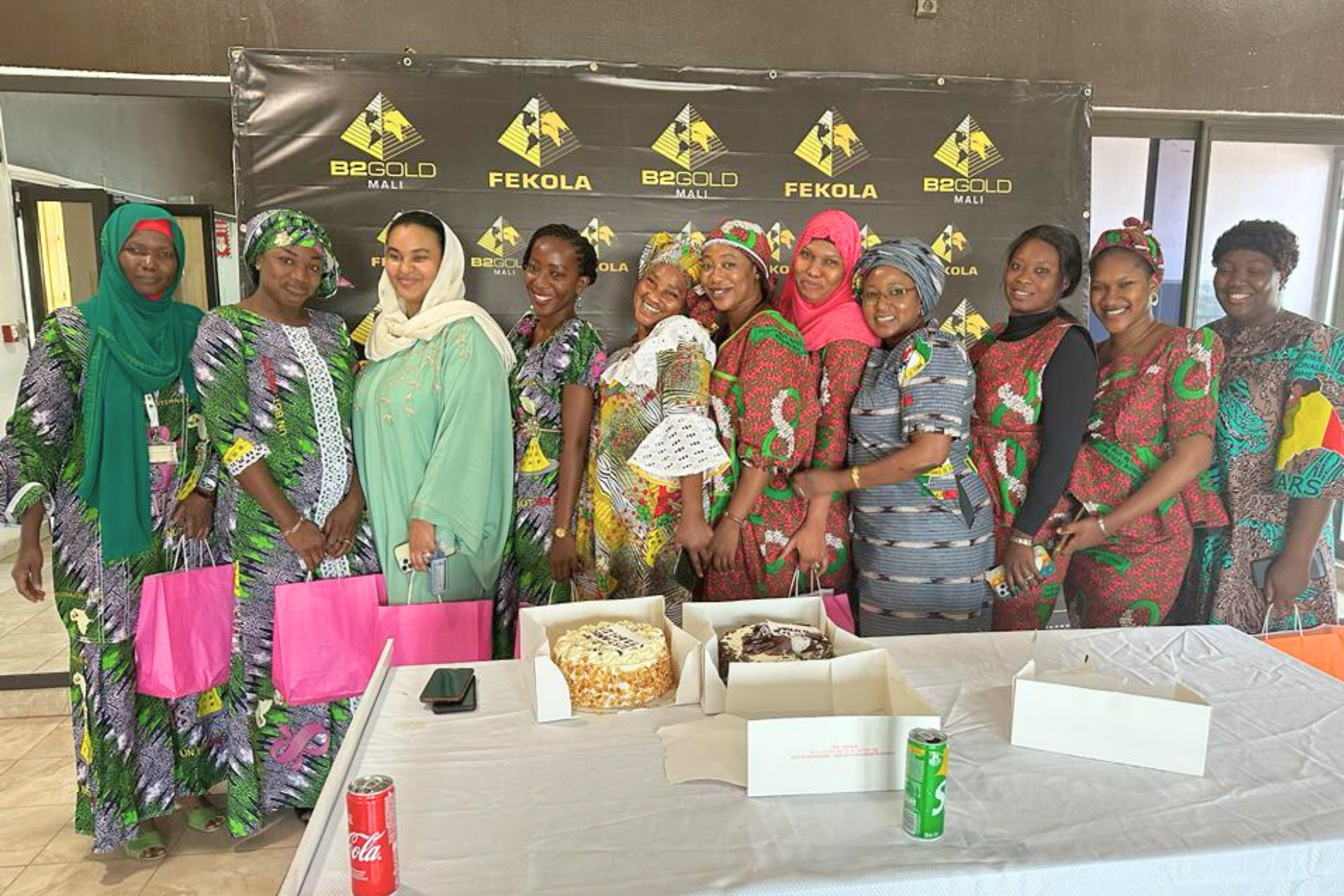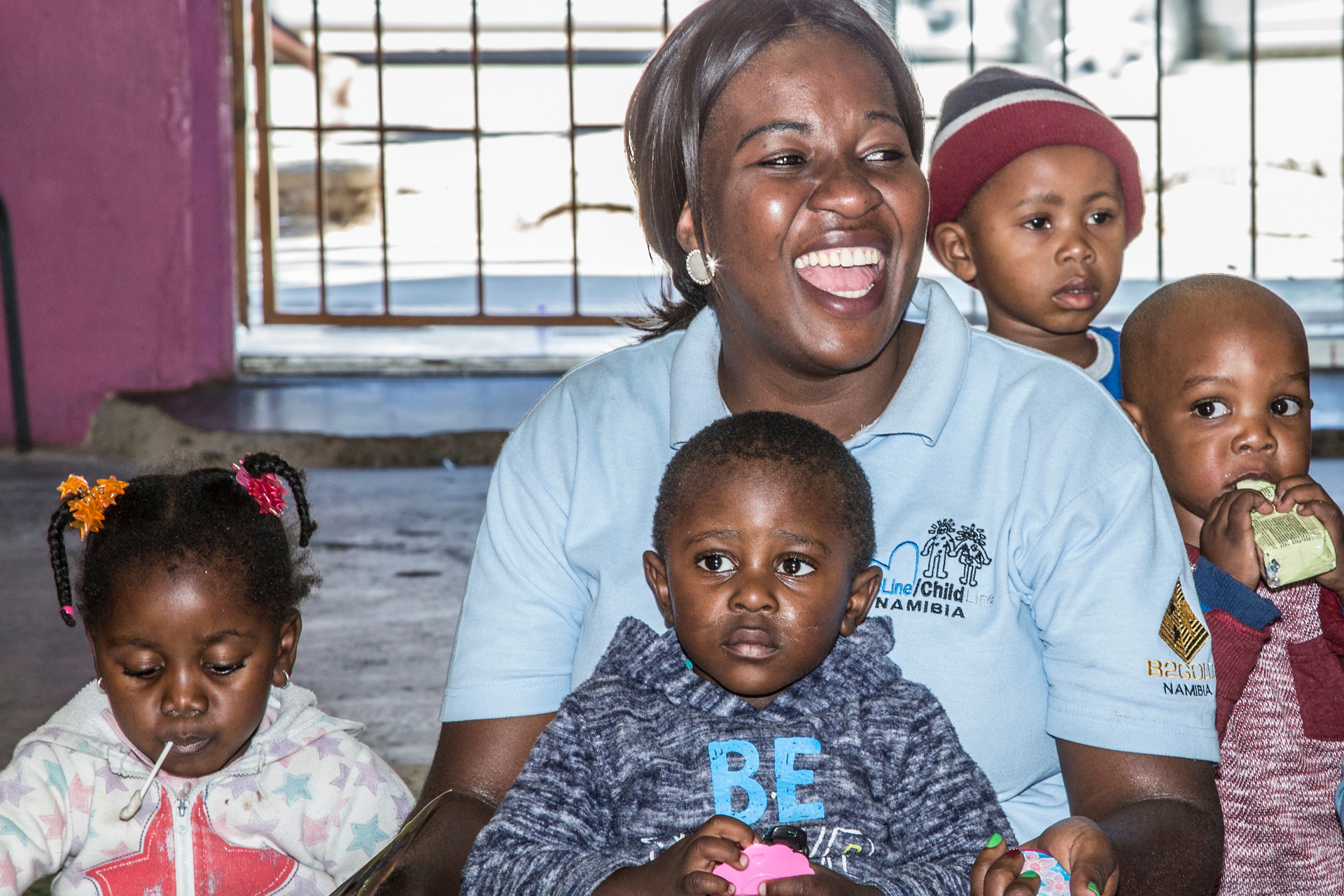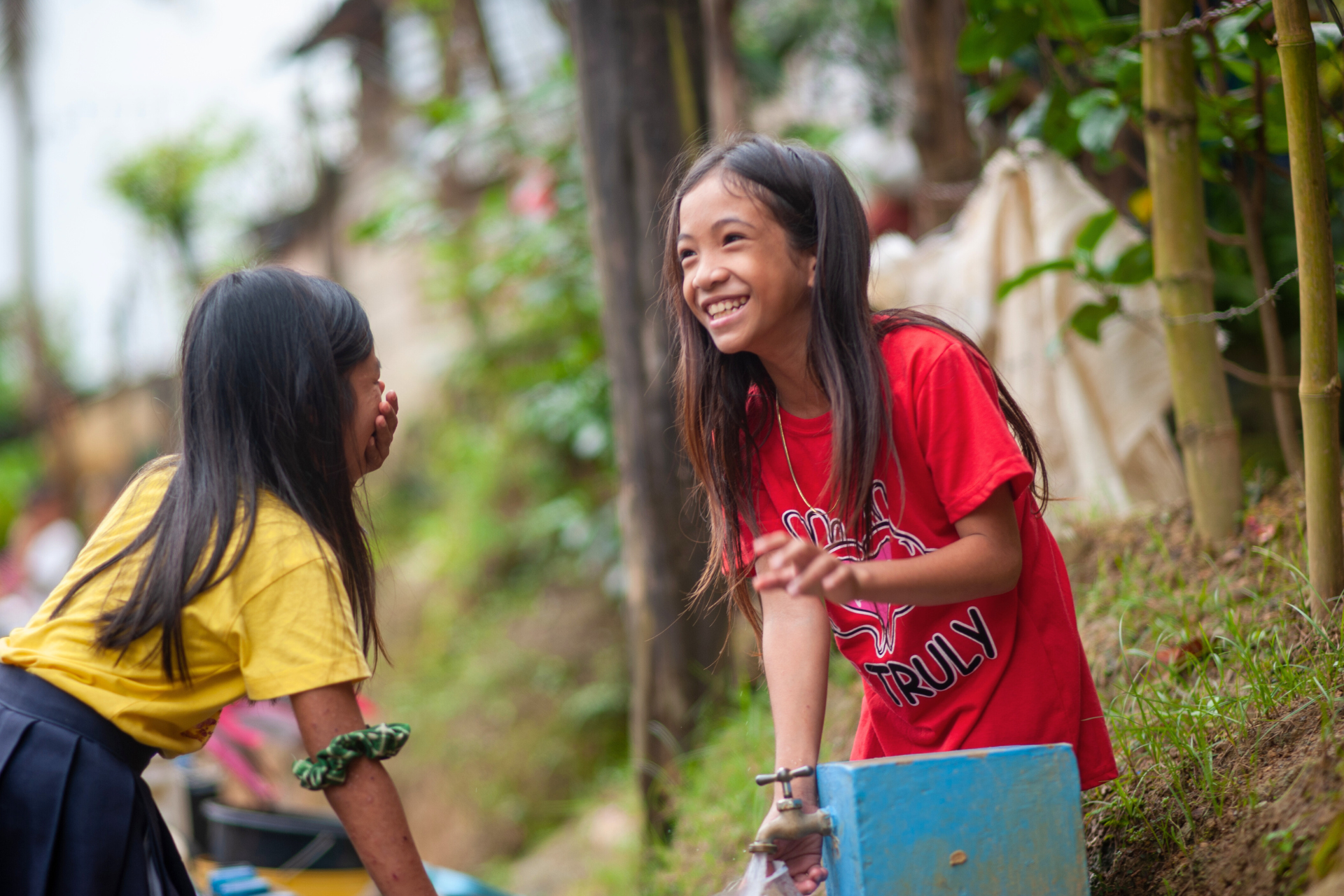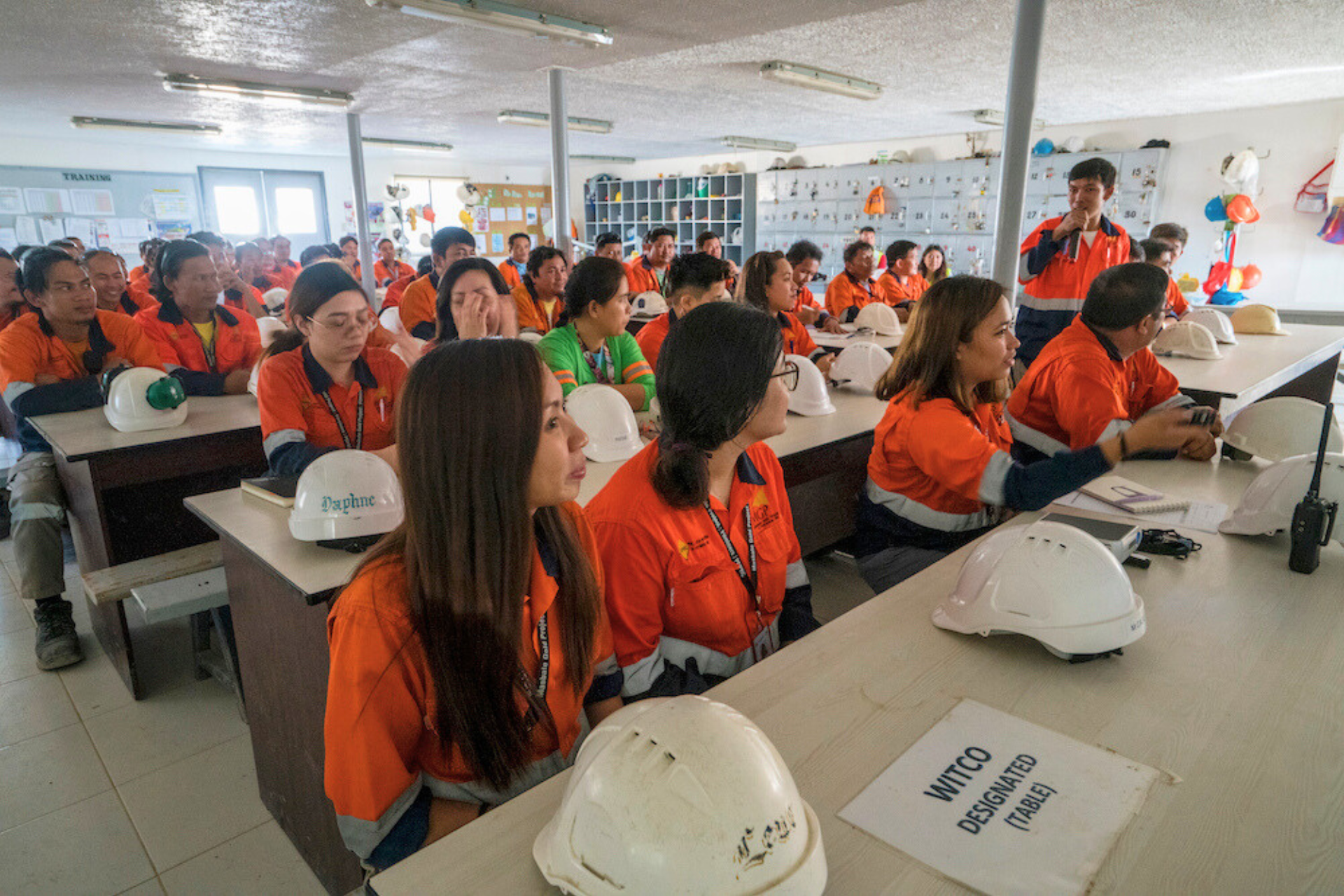Our Stories
Our Communities: B2Gold's Human Rights Commitment
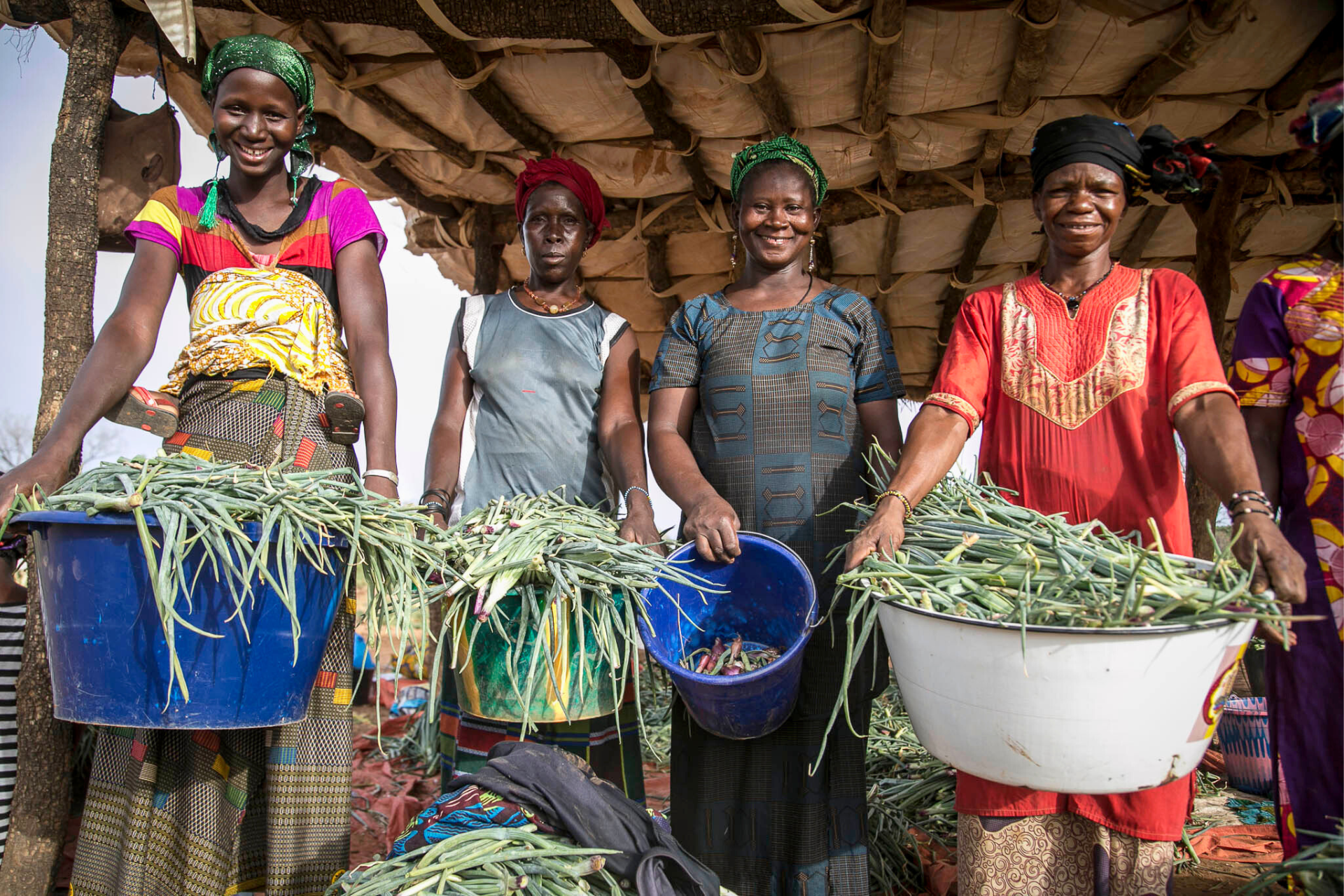
December 4, 2023
Activities within the mining industry, if not managed properly, have the potential to significantly affect people’s rights. We recognize that it is our responsibility to identify our human rights risks and impacts and to actively work to address them at all our sites and throughout our partnerships and business relationships. We are committed to providing access to remedy for any victims of human rights violations for which we are responsible.
As our framework, we recognize human rights as defined in the Universal Declaration of Human Rights, and we align our approach to human rights risk management with the United Nations Guiding Principles on Business and Human Rights (UNGPs) and the Voluntary Principles on Security and Human Rights (VPSHR).
B2Gold’s human rights approach is outlined in our Social Responsibility and Human Rights Policy and in our Human Rights Performance Standard, which sets the operational requirements to conduct human rights due diligence to prevent and manage adverse impacts we cause, contribute to, or are linked to. Our Security and Human Rights Performance Standard outlines the requirements for respecting human rights and fundamental freedoms while maintaining the security of B2Gold operations.
Additionally, we respect community rights, interests, and culture, and where Indigenous Peoples are identified we consult with stakeholders through the premise of Free, Prior, and Informed Consent (FPIC). We implement these broad principles and commitments through a set of issue-specific Social Performance Standards. In 2022, we implemented two additional standards, our Indigenous Peoples and Cultural Heritage Standards, to formalize our management approaches in these critical social aspects.
A Company-Wide Responsibility for Human Rights
Our corporate CSR Manager is responsible for implementing our human rights strategy, which is overseen by the Sustainability Director and the COO. Significant risks, impacts, and management strategies are reported to the HSESS Committee of the Board.
Our commitment and approach to respecting human rights is actively communicated to our employees through policies, formal communications, human rights and VPSHR assessments, and training.
Human rights training material is used in employee inductions to raise awareness throughout our workforce of our human rights commitments and management practices. We also conduct separate human rights training, aligned with VPSHR requirements, for Security and other select personnel.
Human Rights in Action
We engage with local communities to find participatory and culturally appropriate solutions for managing issues and impacts. Beyond this, we aim to promote sustainable and community-driven development in the regions in which we operate. We strongly believe that it is feasible – and essential – to generate a positive social legacy throughout the entire mining cycle.
An excellent example of our human rights commitments in action came in 2022, when our Fekola project team in Mali developed the Fekola Social Performance Committee. This is a cross-departmental working group led by our Community Relations department – with representatives from the Environment, Human Resources, Safety, Security and Mining departments. The purpose of the committee is to proactively share and address community risks throughout the operation.
The committee is a key mechanism to help ensure the operation meets B2Gold’s Social Performance Standards, which we systematically implement at all of our operating mines – including with suppliers and business partners.
Room for (Continuous) Improvement on Human Rights
As part of our effort for continuous improvement in social risk management and performance, we implement a comprehensive third-party audit program that assesses conformance to our Social Performance Standards. Audits were most recently completed at our Fekola and Otjikoto mines in 2021 and at Masbate in 2022.
The goal of such efforts is continuous improvement. We begin with a Sustainability Strategic Plan that outlines the Company’s priorities and objectives for sustainability risk management and performance. This plan typically includes the following:
- Stakeholder engagement
- Livelihood restoration
- Local content
- Community development and investment
- Indigenous people and cultural heritage
Identifying, Assessing and Managing Human Rights Impacts
Throughout our Responsible Mining Report, we proudly document the wide spectrum of positive impacts we have on local communities, including employment, procurement, community development, and environmental initiatives.
However, as a responsible mining company operating in countries that often have gaps in their enforcement of regulatory requirements and human rights principles, we are also committed to paying close attention to the potential and actual negative impacts we can have on local communities.
We approach the identification, assessment and management of these risks in several ways:
- We conduct Environmental and Social Impact Assessments (ESIAs) at all sites, and include stakeholder input in the identification and assessment of potential socioeconomic impacts.
- We maintain a Social Baseline and Impact Assessment and Management Performance Standard to improve our systematic approach for sites to identify and manage social impacts on local stakeholders. This standard formalizes our practices and outlines operational requirements for the collection of social baseline data and for the identification, assessment, management, monitoring, and communication of social impacts. The standard defines minimum frequencies for consultation and prescribes specific attention to, and requirements for, the consultation process with vulnerable groups.
Management of Salient Human Rights Issues
When determining how to manage our salient human rights issues to reduce risks and address impacts, we consider the nature of our relationship to the issues. Where we have direct control over the activities that can cause an impact, we assume responsibility to directly manage these issues. Examples include resettlement, internal employment practices, and private security practices.
If an issue is related to our activities but we do not have direct control, we work through stakeholders or other available means to address the issue. Examples include potential impacts through our business partnerships, public security forces that are assigned to protect our mine perimeters, and labour conditions in a supplier’s off-site manufacturing facility.
There are also issues where we do not have a direct business relationship with the activity but are still linked to it, for example, artisanal mining that occurs on our permit without our consent. Where we are linked to a salient issue, we work with relevant stakeholders, such as ASM individuals and/or associations, local community representatives, national and international non-governmental organizations, and governments, to address the issue.
Our corporate Sustainability department regularly reviews the implementation status of recommendations from each human rights assessment and actions are taken to address significant gaps in implementation.
Learn more about B2Gold’s global human rights practices and achievements in our 2022 Responsible Mining Report.


